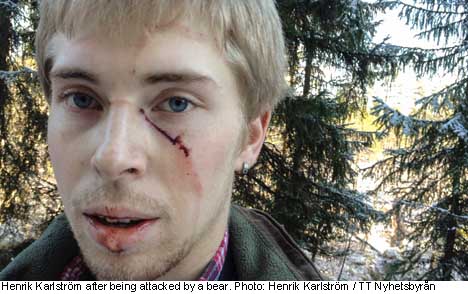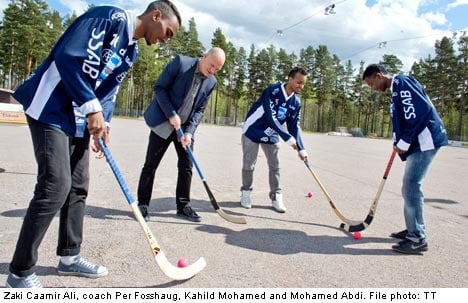Henrik Karlström, 20, who plays with Edsbyns IF in the elite series is more used to defending himself against bandy balls but was competing against a much larger opponent on Saturday – a bear.
“It was like a wrestling match. I lay on my back and had the bear over me,” Karlström told Aftonbladet.
The attack left the shot stopper nursing deep wounds to one of his hands, injuries to his arms, a severe scratch over his face and a gash in the back of his head.
Karlström was pounced upon by the bear when he was hunting elk in a forest close to Ljusdal in eastern Sweden. He heard the bear making noises behind a bush and fired a warning shot before the animal spotted him and made an attack.
After the wrestling match with the wild animal, which he said “felt like forever,” the bear finally let go.
“I don’t know if it was the dog that saved me or if it was something else. I’m happy that I’m still alive,” said the 20-year old.
Following the attack police dispatched a hunting unit to find the bear. On Saturday afternoon a female bear and her cub were killed under the hunting act.
“He was laying down on the ground. He was lucky,” said Paul Edenström of the Gävleborg police to Aftonbladet.
Karlström is likely to miss his club’s opening match of the next season next Friday against Bollnäs as his injuries won’t have healed by then.
“I still have stitches in my hands but over time there won’t be any problems as long as this is able to heal together,” said Karlström.
According to the TT news agency there are an estimated 3,200 bears in Sweden. Bears are usually shy and tend to avoid contact with people but hunters are at a greater risk if they have a dog alongside them.
The Local/pr



 Please whitelist us to continue reading.
Please whitelist us to continue reading.
Member comments